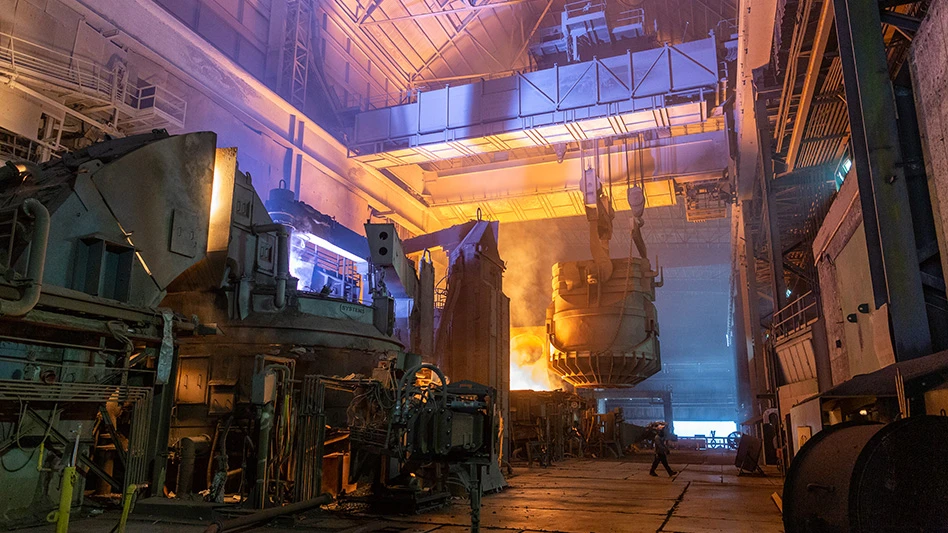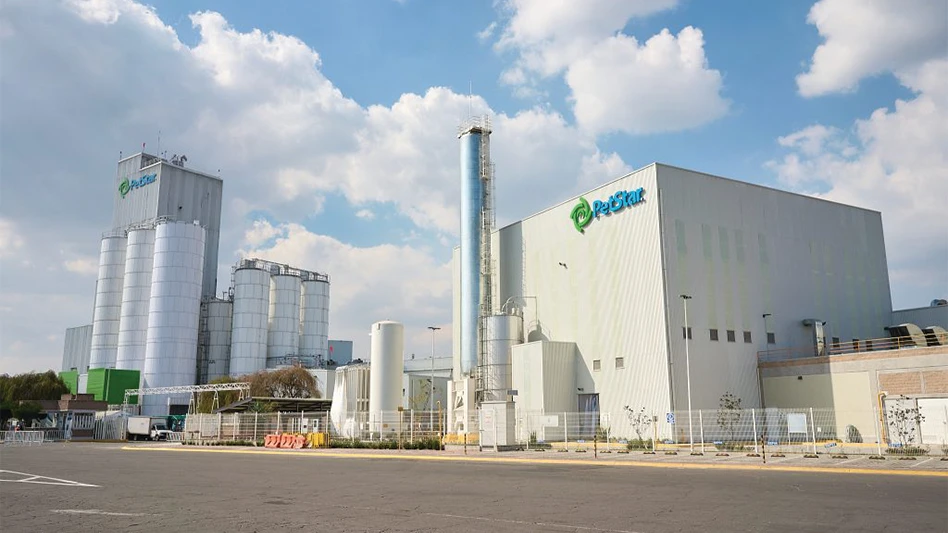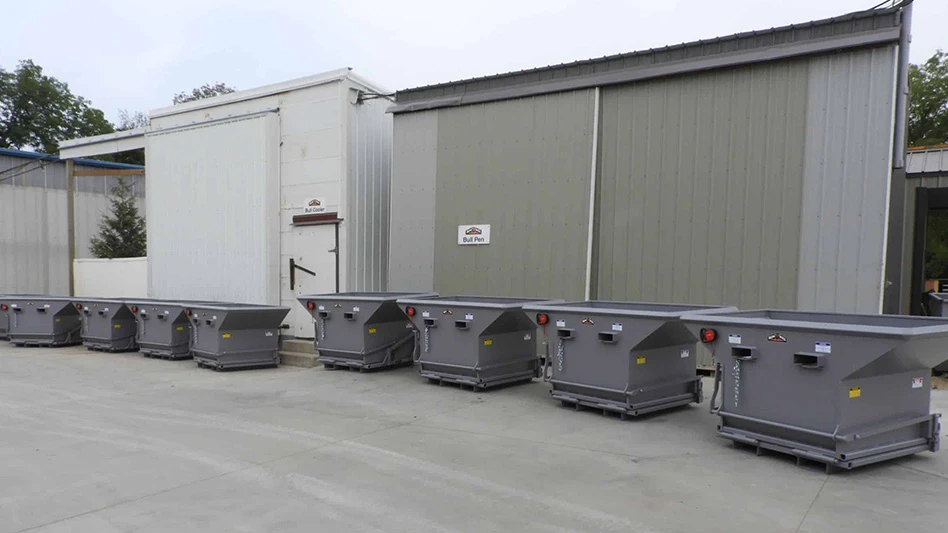The Peltz name has been established in Wisconsin paper recycling circles for decades. Growing cautiously and strategically, The Peltz Group Inc., Milwaukee, is now expanding on several fronts, with a presence spreading beyond Wisconsin.
The company has trading offices in cities throughout North America, and has a physical collection and processing presence three states away in Cleveland. As with many other paper stock dealers, the company also handles additional recyclables other than paper so it can compete for municipally collected materials.
And the growth that is taking place is being planned with the future in mind, as the company’s current leaders groom a new generation of younger executives to carry The Peltz Group into the decades ahead.
LOOKING FORWARD
The devastation of Europe caused by World War II led to an influx of immigrants coming to America in search of a better life. Among those arriving in America in 1945 were brothers Joseph Peltz and Nathan Pelz. (The names were documented differently by U.S. immigration officials. The proper spelling—Pelc—was missed in both attempts.)
The brothers emigrated from Poland to Milwaukee and, within a few years, started a business together collecting scrap paper for Wisconsin’s plentiful pulp and paper mills.
A strong work ethic and a high level of integrity in dealing with paper generators and with mills are credited with helping the Peltz brothers build their company into a dominant regional competitor.
What the founding brothers learned about the business they passed on to younger family members, who have helped the company continue to grow and prosper despite all the changes that have occurred within the recycling industry in the past two decades.
The company’s current leadership team consists of second generation Peltz family members working together with several managers brought from outside the family, including some younger people learning from the long-time employees while also bringing outside knowledge into the firm.
Much of the growth of The Peltz Group Inc., especially within Wisconsin, took place in the 1980s and early 1990s. But another surge of growth has occurred within the last six or seven years, according to chief operating officer Brian Fielkow.
“In 1995 we opened our large processing plant in Menasha, Wisc., in Paper Valley,” says Fielkow. “We’ve added a facility in Superior, Wisc., that processes material from the region that includes Superior and Duluth, Minn. And in 1999, we purchased Ohio Waste Paper and Recycling Options in Cleveland, and merged them together to create our Cleveland operations.”
The brokerage business has also gained additional importance to the company. The Peltz Group now has trading offices not only in Milwaukee, but also in Chicago, Toronto, Atlanta and Los Angeles.
According to Fielkow, the brokerage business has become more critical due to the increasingly international nature of the industry. “We ship to more than 250 mills, and that has been a big change in the last few years,” he remarks. “The industry has become more international, with shipments going across the Pacific and to Mexico. The paper that we’re selling is really going all over the world, which is reflective of the growing role of exports in our market.”
An ability to not just react to changes in their markets, but also anticipate them, has been necessary for The Peltz Group managers to keep their business on a growth track.
|
It’s All About IT |
|
“The definition of service has to be rewritten all the time,” says Peltz. “As we look at how to create value, we have to constantly look into the mirror and redefine what we’re doing.” |
BUILDING A BETTER BALE
The location of destinations for paper baled by The Peltz Group is far from the only change the company has dealt with in the past several years.
The company remains a high-volume collector and processor of paper grades and other recyclables, and thus pays constant attention to the best ways to pack quality shipments.
“In talking to consumers, their definition of value includes the quality of the pack and of the freight service,” says Peltz Group executive vice president Shawn Lavin. “We have a lot of dollars invested in processing equipment. We offer a consistency in our grades and a reputation of being here 12 months a year.”
The attention to quality sometimes seems to work at odds in an industry where, according to president Harry Pelz, “the mills have one thing in mind: They want to buy at the lowest possible price. Certainly they want to buy quality material, but price remains critical.”
Like other paper recyclers, The Peltz Group must make capital expenditures to buy equipment that can handle a larger volume of a wide number of grades while also keeping costs down.
“Keeping your costs down is critical,” comments executive vice president Arnie Peltz. “Good cost accounting is necessary,” he continues, “and all of our operations managers meet once a month to compare what they’ve accomplished at each of the plants the previous month. They look at the numbers and they learn from each other. You have to build up people who really know how to do it right.”
Good personnel must have access to equipment that can get the job done. Even though keeping costs down is an important goal, that does not mean The Peltz Group operates with obsolete equipment subject to frequent breakdowns.
“I think we’ve always reinvested capital in our business,” says Harry Pelz. “We’ve never taken a position that you make money and you hoard it. You must reinvest.”
Fielkow notes that the company has recently refurbished its Paper Valley facility, installing a star screen sorting system.
While sorting and baling equipment requires one type of investment, it is also important for the company to keep up with the upgraded flow of information. “The information technology aspect of the business is a new type of challenge,” says Harry Pelz. “We’re going to have to continue to invest to make sure those areas of our business are up to par. We find our customers expect us to do a lot more of the back office work.”
Performing that extra work should be doable for The Peltz Group. The company has a history of working with generators to maximize the revenue they receive for their generated materials through their ability to process materials (onsite if necessary) and due to its familiarity with what grades are desired by mills.
Case studies and testimonials kept on hand by The Peltz Group demonstrate how the company has been able to help generators and retain a loyal base of generators. “We take the product they generate and offer it to a number of mills, allowing the generator to benefit from the broader perspective of what the market might bear,” says Harry Pelz.
“Our core focus is to provide recycling services to generators,” agrees Fielkow. “Our role in the marketplace is often as an advocate for generators, and our mission is not to buy from our generators at the lowest possible cost.”
The company does not confuse advocacy for generators with a confrontational attitude toward mills, however. “It goes back to having a long-term vision,” says Fielkow. “It would be easy to stick it to a mill in an up market. But we understand the grades mills consume and what are the logical rates and fair prices in any market. We are very focused on not just this month, but on adding value month in and month out.”
GROWTH OPPORTUNITIES
Much of the Peltz Group’s business has involved obtaining materials from commercial printing companies in Wisconsin while then selling product to pulp and paper mills also located in the Badger State.
But as the existence of the company’s out-of-state brokerage offices signals, paper stock dealing has become a global game where many once local patterns of trading might now offer a more profitable international alternative.
Although proud of its presence in Wisconsin, The Peltz Group long ago abandoned the notion of being strictly a regional competitor. In addition to the previously mentioned brokerage offices, the company made a significant expansion step two years ago when it acquired recycling facilities in Cleveland.
Peltz Group managers acknowledge that managing facilities three states away has added a new twist to what they do. “It’s much easier to address a problem if it’s in your back yard and you can hop in your car and get there in an hour or less,” admits Harry Pelz.
“You have to have good local management, which I believe we have,” chief financial officer Jon Vosburg says of the Cleveland operations. “For me, it comes down to the people you have there understanding your philosophy, your goals and your objectives. Your chances of success are greatly improved.”
Should the Peltz Group management become convinced that their model is working in Cleveland, it could make the company much more open to the possibility of acquiring additional facilities in other markets.
“I think we’ve got an excellent blueprint for operating plants in other markets,” says Vosburg. “I’m very proud of our plant operations and the managers in Cleveland.” He notes that the Superior, Wisc., facility the company acquired from Waste Management Inc. in May of 1998 is also quite far removed from Milwaukee, and that it provides an additional reason for optimism that the company can manage assets in other markets.
“Our intention is to expand our reach,” says Fielkow. “I couldn’t name a particular city, but we will go into a market where there is a good opportunity. Sometimes it can be done by opening a plant, or by becoming partners with an existing business that wants a strategic alliance with us.”
Document shredding has been another source of additional revenue and paper tonnage. “We’ve had some very successful business development in that area,” says Vosburg.
As the business has expanded, the processing of other materials, including aluminum and plastic containers and aluminum printers’ litho plates, has kept the company involved in materials beyond paper.
“Paper is definitely our core business,” says Fielkow, “but our goal is to be full service for our customers. Many of these customers generate metals and plastics. We’ve done a pretty good job of developing our plastics and metals business. A lot of the plastics were going to the landfill.”
An Even Keel Coping with price volatility for half a century has helped The Peltz Group maintain its even keel. “We kind of stay the course,” says Fielkow. “It’s remarkable how little changes in the execution of our business plan from one set of market conditions to the next. When we develop our business plan, it has to make sense in good markets and in bad markets.”
FACING THE CHALLENGES
The Peltz Group Inc. took advantage of growth opportunities in the late 1990s, but the depressed state of recycling markets the past two years have been clear to Peltz’s managers, who do not wear rose-colored glasses.
Regarding increased forays into processing additional materials beyond paper, Harry Pelz says, “buying and selling scrap paper and trying to make a profit at it is enough of a challenge right now.”
Securing payments from foundering paper mills has been one source of concern during the difficult market of the past 18 months. “Credit management is a service we provide our customers,” says Fielkow. “There have been a significant number of bankruptcies, and that doesn’t even take into account the mills on credit watch status. You’ve got to be very careful; it’s a rocky environment out there.”
The shakeout is coupled with a number of mergers among both paper mills and among commercial printers, who make up an important component of Peltz’s generator segment.
“There has been a lot of consolidation on both the consumer and the generator side,” says Arnie Peltz. “We’re dealing with fewer, larger companies, and they are generally better informed.”
Says Vosburg, “It hasn’t necessarily been a negative, but you need to pay close attention to meeting customer needs on the generation and the mill side. We have seen the disappearance of companies we had dealt with in the past.”
The tough market has also taken its toll on recyclers, with some closing up, some selling out and others retreating from the market.
Vosburg says The Peltz Group philosophy is not only to ride out down cycles but also to take advantage of opportunities that can arise. “Managing for the long-term and doing what you need to do to stay focused in both the up times and the down times is vital,” he says. “We have always looked at the ability to grow our tonnage in down markets as a tremendous opportunity. We believe that due to our financial strength and what we have to offer, we’ll guarantee that we’ll take your paper in any market and give you a market price and make our payments on time. Even if we have to store it in a warehouse or a rail car, we can take the material.”
Although it is difficult to approach the future of the industry with any certainty, Fielkow says the company is confident it can adapt to any changes.
“We still feel very good about the future of paper recycling,” he remarks. “We kind of chuckled a few years ago when people predicted a paperless society. There’s more paper coming out of offices than ever before. We feel good about the long-term market. We’re investing heavily in our own operations, and we wouldn’t be doing that if we didn’t feel good about where the industry is going.”
The author is editor of Recycling Today and can be contacted via e-mail at btaylor@RecyclingToday.com .
Latest from Recycling Today
- Autocar releases Smart Battery Cable to advance refuse truck fire safety
- PLASTICS launches Positives of Plastics website
- Impact Air Systems launches compact ZAC400
- PCA to shut down paper machines at Washington containerboard mill
- BMRA provides landfill guidance for UK shredder operators
- Fornnax high-capacity tire recycling plant
- EU introduces measures to secure raw materials, strengthen economic security
- US Steel to restart Illinois blast furnace





